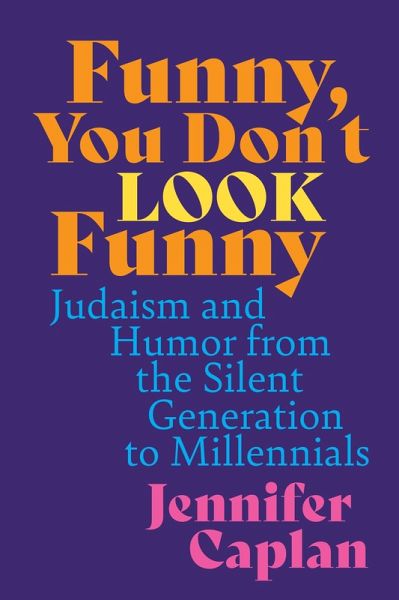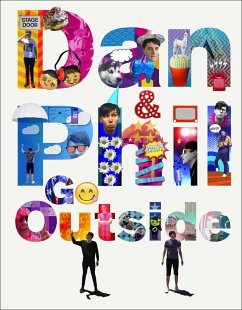
Funny, You Don't Look Funny (eBook, ePUB)
Judaism and Humor from the Silent Generation to Millennials
Versandkostenfrei!
Sofort per Download lieferbar
31,95 €
inkl. MwSt.
Weitere Ausgaben:

PAYBACK Punkte
16 °P sammeln!
In this comprehensive approach to Jewish humor focused on the relationship between humor and American Jewish practice, Jennifer Caplan calls us to adopt a more expansive view of what it means to "do Jewish," revealing that American Jews have, and continue to, turn to humor as a cultural touchstone. Caplan frames the book around four generations of Jewish Americans from the Silent Generation to Millennials, highlighting a shift from the utilization of Jewish-specific markers to American-specific markers. Jewish humor operates as a system of meaning-making for many Jewish Americans. By mapping h...
In this comprehensive approach to Jewish humor focused on the relationship between humor and American Jewish practice, Jennifer Caplan calls us to adopt a more expansive view of what it means to "do Jewish," revealing that American Jews have, and continue to, turn to humor as a cultural touchstone. Caplan frames the book around four generations of Jewish Americans from the Silent Generation to Millennials, highlighting a shift from the utilization of Jewish-specific markers to American-specific markers. Jewish humor operates as a system of meaning-making for many Jewish Americans. By mapping humor onto both the generational identity of those making it and the use of Judaism within it, new insights about the development of American Judaism emerge. Caplan's explication is innovative and insightful, engaging with scholarly discourse across Jewish studies and Jewish American history; it includes the work of Joseph Heller, Larry David, Woody Allen, Seinfeld, the Coen brothers films, and Broad City. This example of well-informed scholarship begins with an explanation of what makes Jewish humor Jewish and why Jewish humor is such a visible phenomenon. Offering ample evidence and examples along the way, Caplan guides readers through a series of phenomenological and ideological changes across generations, concluding with commentary regarding the potential influences on Jewish humor of later Millennials, Gen Z, and beyond.
Dieser Download kann aus rechtlichen Gründen nur mit Rechnungsadresse in A, B, BG, CY, CZ, D, DK, EW, E, FIN, F, GR, HR, H, IRL, I, LT, L, LR, M, NL, PL, P, R, S, SLO, SK ausgeliefert werden.












